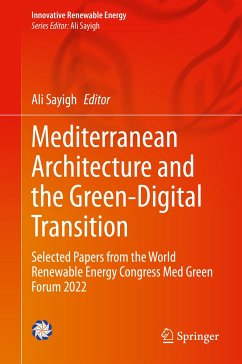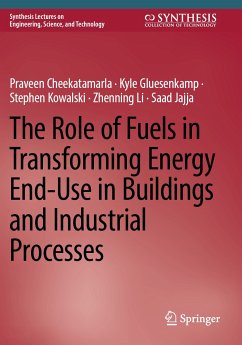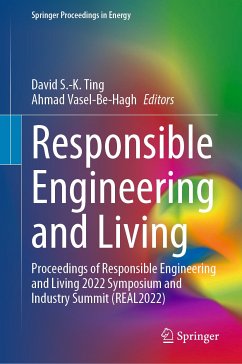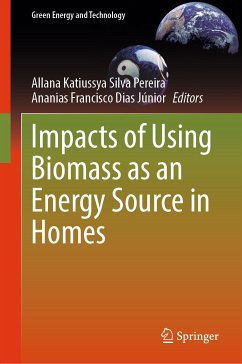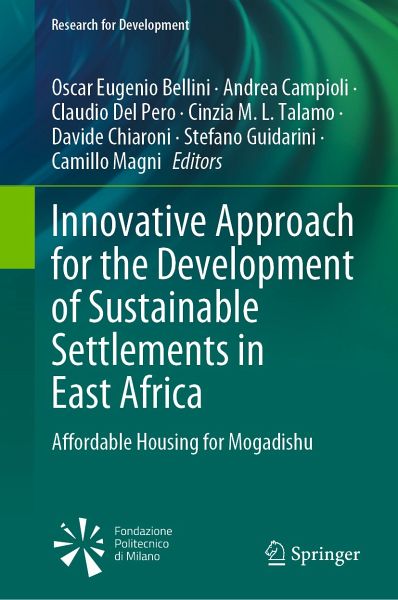
Innovative Approach for the Development of Sustainable Settlements in East Africa (eBook, PDF)
Affordable Housing for Mogadishu
Redaktion: Bellini, Oscar Eugenio; Magni, Camillo; Guidarini, Stefano; Chiaroni, Davide; Talamo, Cinzia M. L.; Del Pero, Claudio; Campioli, Andrea
Versandkostenfrei!
Sofort per Download lieferbar
64,95 €
inkl. MwSt.
Weitere Ausgaben:

PAYBACK Punkte
32 °P sammeln!
This book deals with sustainable affordable housing in developing countries, providing the main results of the BECOMe research project of the Politecnico di Milano. Sustainable, affordable housing in developing countries is increasingly important for African and international stakeholders, with massive urbanization processes involving many countries consuming large territories and natural resources minus any strategy of sustainability and social equality and without consideration of the long-term effects on the environment and subsequent generations. While the issue of affordable housing requi...
This book deals with sustainable affordable housing in developing countries, providing the main results of the BECOMe research project of the Politecnico di Milano. Sustainable, affordable housing in developing countries is increasingly important for African and international stakeholders, with massive urbanization processes involving many countries consuming large territories and natural resources minus any strategy of sustainability and social equality and without consideration of the long-term effects on the environment and subsequent generations. While the issue of affordable housing requires approaches adapted to the many specific African contexts, the case of Somalia seems representative of a fragile context characterized by the uncertainty of the social, political, and economic situations and the lack of common shared legislative references and strategies. The book aims to provide knowledge and propose a methodological framework developed from this particular situation that canserve as a template. On the basis of this main objective, the book deals with approaches and problems related to the creation of sustainable housing ecosystems, activating and boosting local enterprises and stimulating foreign investors to revamp the national AEC sector and related manufacturing industries, models for modular settlements, and business models and assessment methodologies useful for evaluating a set of appropriate technological solutions.
Chapters 03 and 07 are available open access under a Creative Commons Attribution 4.0 International License via link.springer.com.
Chapters 03 and 07 are available open access under a Creative Commons Attribution 4.0 International License via link.springer.com.
Dieser Download kann aus rechtlichen Gründen nur mit Rechnungsadresse in A, B, BG, CY, CZ, D, DK, EW, E, FIN, F, GR, HR, H, IRL, I, LT, L, LR, M, NL, PL, P, R, S, SLO, SK ausgeliefert werden.





